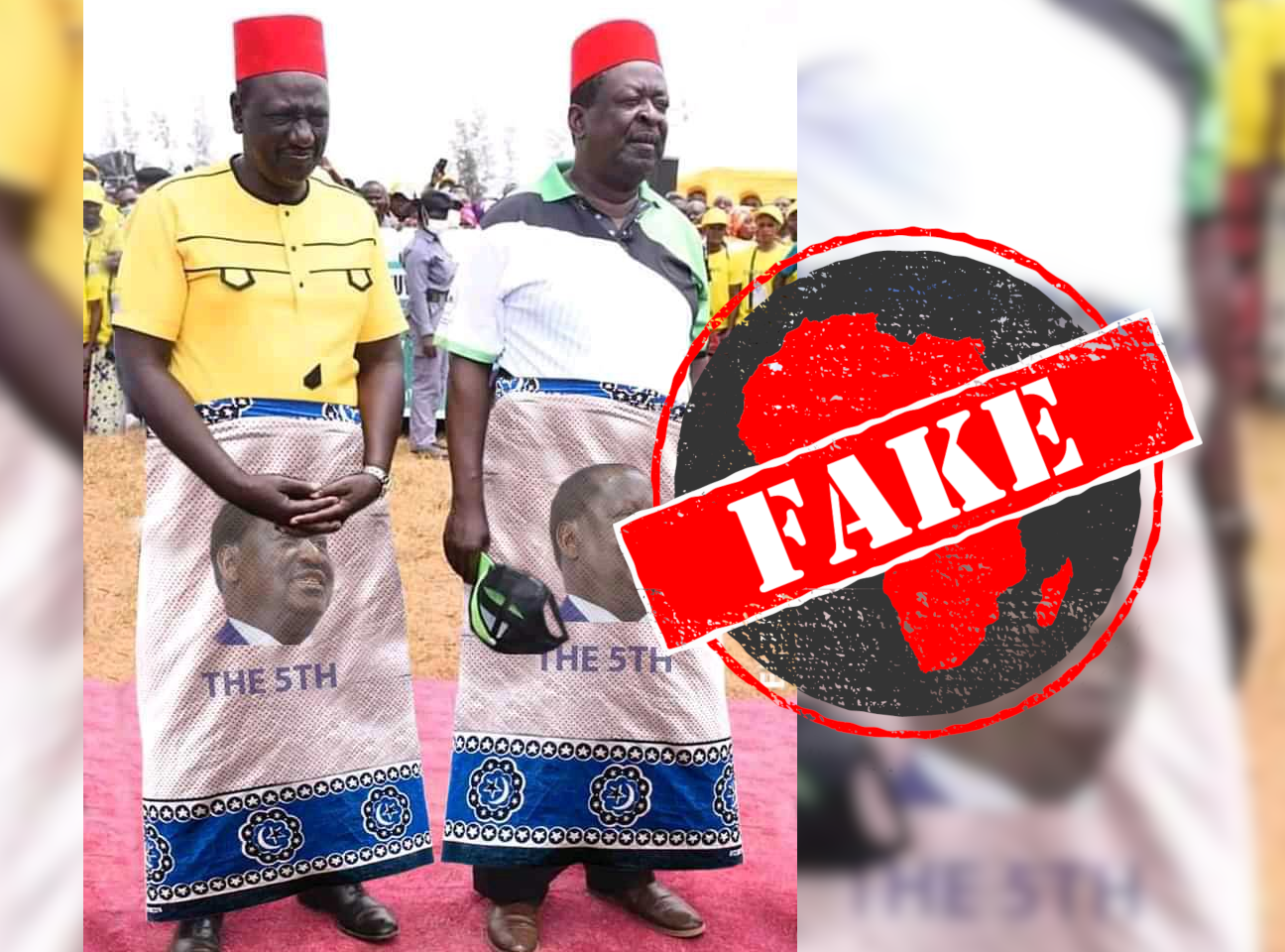On 5 February 2022, the Kenya Kwanza political alliance led by deputy president William Ruto held a political rally in Kwale county, wearing Mijikenda traditional dress.
The next day, an image showing Ruto and Amani National Congress (ANC) party leader Musalia Mudavadi standing side by side with their traditional regalia printed with Orange Democratic Movement (ODM) party leader Raila Odinga’s face went viral.
Odinga is their rival for the presidency in Kenya’s upcoming general elections, set for 9 August. Below his face is printed “THE 5TH”, implying that Odinga will be the country’s fifth president.
“Ni kama wamekubali,” one user captioned the image. That’s Kiswahili for: “It seems they have accepted.” The image has appeared on a Facebook group with more than 99,000 members.
But did Ruto and Mudavadi really wear outfits endorsing Odinga? We checked.

Reverse image search
Using a reverse image search, we quickly found the original, unaltered photo – and Odinga’s face is not on their clothes.
Mudavadi posted it on Facebook and Twitter on 5 February.
Our priority will be to support viable options in the exploitation of limestone, titanium, coal, sandstones among other minerals and ensure value addition at low cost with a sense of tapping into a ready market for the minerals and their by-products. pic.twitter.com/HFpWSmjsdo
— Musalia W Mudavadi (@MusaliaMudavadi) February 5, 2022
While the viral image shows the pair in Swahili clothing known as “kanga” printed with Odinga’s face, the original photo shows them in plain black traditional attire. The image has been altered.
Republish our content for free
For publishers: what to do if your post is rated false
A fact-checker has rated your Facebook or Instagram post as “false”, “altered”, “partly false” or “missing context”. This could have serious consequences. What do you do?
Click on our guide for the steps you should follow.
Publishers guideAfrica Check teams up with Facebook
Africa Check is a partner in Meta's third-party fact-checking programme to help stop the spread of false information on social media.
The content we rate as “false” will be downgraded on Facebook and Instagram. This means fewer people will see it.
You can also help identify false information on Facebook. This guide explains how.


Add new comment